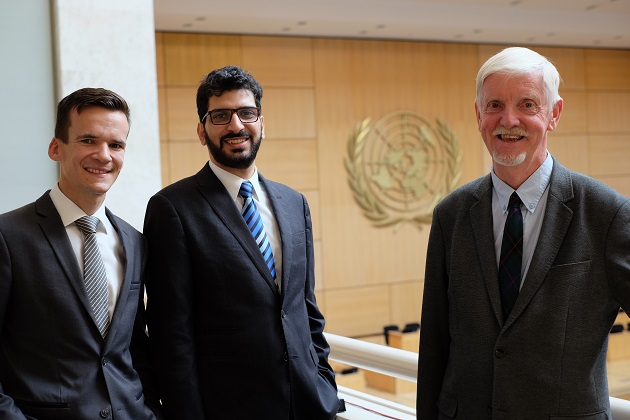
A view of Stockholm, in Sweden. / Photo: PeterIvey
Sweden was one of the countries reviewed in the 45th session of the United Nations Human Rights Council (UN HRC).
Throughout its “cycles”, the Universal Periodic Review (UPR) gives a chance to countries and NGOs to present recommendations to all member states.
During the September 2020 session, the World Evangelical Alliance (WEA), which holds a NGO status, gave a statement on Sweden. Previoulsy, they had also spoken about Pakistan, Zimbabwe, and Turkey.
Christian converts face risks of persecution in country of origin
“We call on Sweden to take more effective measures to protect the rights of asylum-seekers to leave their current religion or to change their religion for another, and who run from the significant risks of persecution in their countries of origin”, said Michael Mutzner, one of the WEA spokespersons at the UN HRC in Geneva (Switzerland).
“Studies have shown that Christian converts had faced politicized and arbitrary procedures in Sweden and that the personnel of the Migration Agency lacks the necessary expertise and does not sufficiently collaborate with civil society when it verifies the genuineness of a conversion claim”, he said.
The WEA also underlined the lack of freedoms for refugees already living in the Nordic country. They called on “Sweden to extend its National Plan against racism and hate crimes to include specific measures to combat all categories of hate crimes, including specific affirmative measures to combat harassment of Christian refugees in asylum centres”.
Abortion and conscientious objection
In its statement, the WEA also spoke about the lack of freedoms of health personnel in ethical issues. The evangelical body said it “regrets that Sweden is one of the rare countries where the right to conscientious objection for medical personnel unable to participate in abortions due to their convictions, is not respected”.
“No one should be discriminated against because of a refusal to participate in an abortion procedure, and reasonable accommodation should be discussed in order to find compromises that respond both to the imperative of a person’s conscience and to the requirement of public health services”.
 Michael Mutzner, Wissam Al-saliby and Albert Hengelaar, World Evangelical Alliance representatives at the United Nations Human Rights Council. / WEA
Michael Mutzner, Wissam Al-saliby and Albert Hengelaar, World Evangelical Alliance representatives at the United Nations Human Rights Council. / WEA
The WEA added that it is “unfortunate” that Sweden “takes a hard line” in this matter when there would be alternatives to have “a more pragmatic approach that would respect the freedom of conscience of its medical personnel”.
Mutzner closed the WEA statement by calling on Sweden “to renounce its proposed legislative ban on faith-based private schools”.
Source: evangelicalfocus.com
